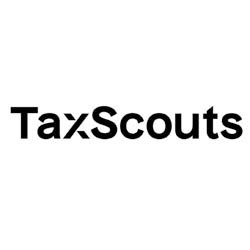Important tax dates and deadlines contractors need for their 2020/21 Self Assessment
There were over 1.8 million UK taxpayers who did not submit their Self Assessment tax return on time in 2021. That’s 16% of all total Self Assessment taxpayers who potentially incurred late filing penalties or interest.
Here, TaxScouts take you through the important dates and deadlines you need to know to avoid any New Year headaches with your Self Assessment tax return.
File your tax return online
Over 90% of UK taxpayers file their tax returns online. That’s around 10.5 million Self Assessments.
Most people can file their Self Assessments online. The only exceptions are:
- A business that is a partnership
- Filing for a trust or estate
- If a person lives abroad as a non-resident
Dates and deadlines
The tax year for 2020/21 ran between April 6th 2020 to April 5th 2021. So be sure to have all your income and expenses records up to date for this period.
The deadline for submitting your 2020/21 tax return online is 31st January 2022. It’s important to remember that this is also the deadline to pay anything you owe. To make sure you have plenty of time to make your payment for the 2020/21 tax year, you should submit your Self Assessment as far before the deadline as you can.
Registering for self assessment
To submit a self-assessment tax return you need to be registered with HMRC. You only need to do this if you haven’t submitted a Self Assessment tax return before. You can register for Self Assessment here.
Registering with HMRC tells them you are earning untaxed income. You’ll pay tax on it through a Self Assessment tax return. After registering, you receive a Unique Taxpayer Reference (UTR) number from HMRC. You’ll need this to complete your tax return and it can take a month or more to arrive
Organising your income statements and expenses
For most people, the most daunting and time-consuming part of completing a Self Assessment is totalling up all your income information correctly. You will need to declare details of all the income you have earned during the 2020/21 tax year, including income that has already been taxed under PAYE.
Income could also be earned interest, dividend payments or money earned from selling assets like property, shares, cryptocurrency or even personal possessions. This is called Capital Gains Tax (CGT).
Early filing trend
There aren’t really any practical benefits that come from waiting until the last minute to file a tax return. HMRC continue to encourage early filing. This year, over 63,500 2020/21 Self Assessments were filed on the first filing day, 6th April 2021. Almost 10% of Self Assessments were returned by the end of May.
It’s good to get into a good routine with your tax return that allows you to submit and pay anything you owe well before the deadline.


